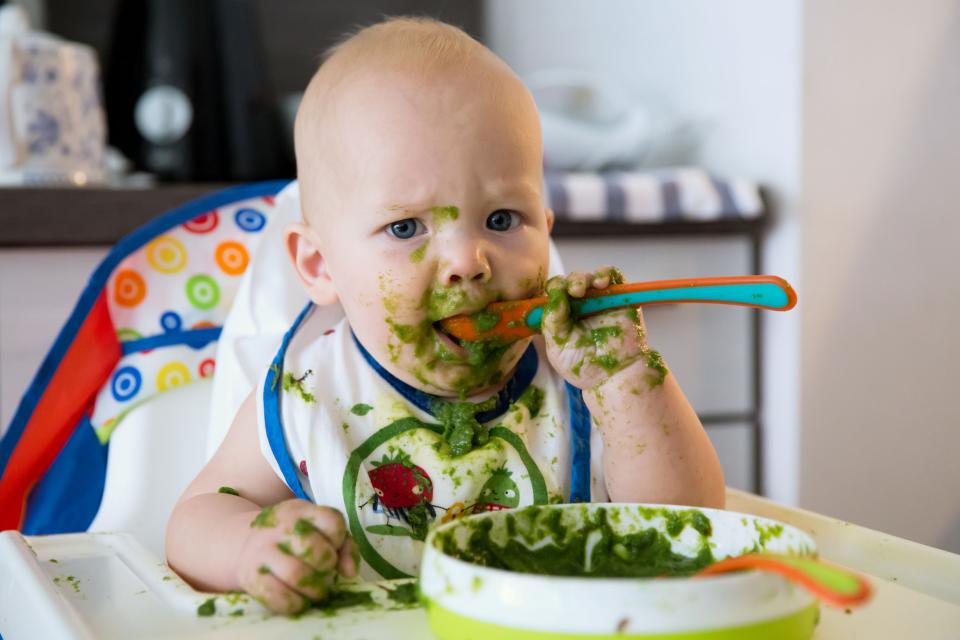The main source of nutrition for the first year of your baby’s life is breast milk, but once the child shows signs of readiness in eating solid food between 4 to 6 months, you should expose them to new flavours.
This step at an early age will lead your child to healthy eating habits.
Is your baby ready for solids?
Signs that indicate your baby is ready to do so are:
- Can sit up straight in an infant chair
- Holds head up independently
- Tries to take other people’s food at the meal table
- Eats food without pushing it back out automatically, i.e., the tongue-thrust or extrusion reflex is fading or has gone away
What are the best foods to start with and how much should be given?
Begin feeding with single-ingredient pureed fruits and vegetables to check for allergies and tolerance.
4 to 6-month old infants should be fed twice a day in small portion. Start with 2 tablespoons, then gradually increase the amount as the child gets older and the appetite increases.
Examples of age-appropriate solid food that can be offered to infants:
4 to 6 months (single-ingredient puree)
Baby cereal, banana, sweet potato, avocado, pea, pumpkin, carrot, butternut squash, cauliflower, apple, pear.
7 to 9 months (thicker mixed puree)
Fish and vegetable, meat and vegetables, fish/meat and vegetable porridge (grind the rive grain into powder before cooking), fruit and yogurt.
9 to 12 months (chunkier puree, chopped, ground or mashes)
Porridge, broccoli, spinach, beans, cabbage, potato, corn, papaya, watermelon, plum, cherry, nectarine, tofu, pasta, cheese, herbs and spices (for flavour).
Why won’t a child eat solid food?
Every child develops at a different pace. Children may need to be exposed to a new food several times before they start enjoying it. Keep trying every other day. Some babies may be more interested in playing with the food, and that is absolutely fine. Make sure they eat according to their appetite. If they clench their mouth or turn their head away, do not force them to eat.
Precautions to be taken while giving solid foods to baby
Food allergies are very common in babies. Hence, it is recommended to give the same food for 3 days before introducing another food. Allergic reactions can cause gas, rashes, runny nose or crankiness. Speak to your pediatrician if your baby experiences any allergic reaction to food and ask if it is safe to reintroduce the food next time. Never leave your child alone while he is eating as he may choke or gag on solid food.
Child care centers, such as Camelot Infant Care, are diligent about food requirements and developing healthy eating habits. Parents can rest assured that the best and safest techniques are adopted to properly care for their babies.












